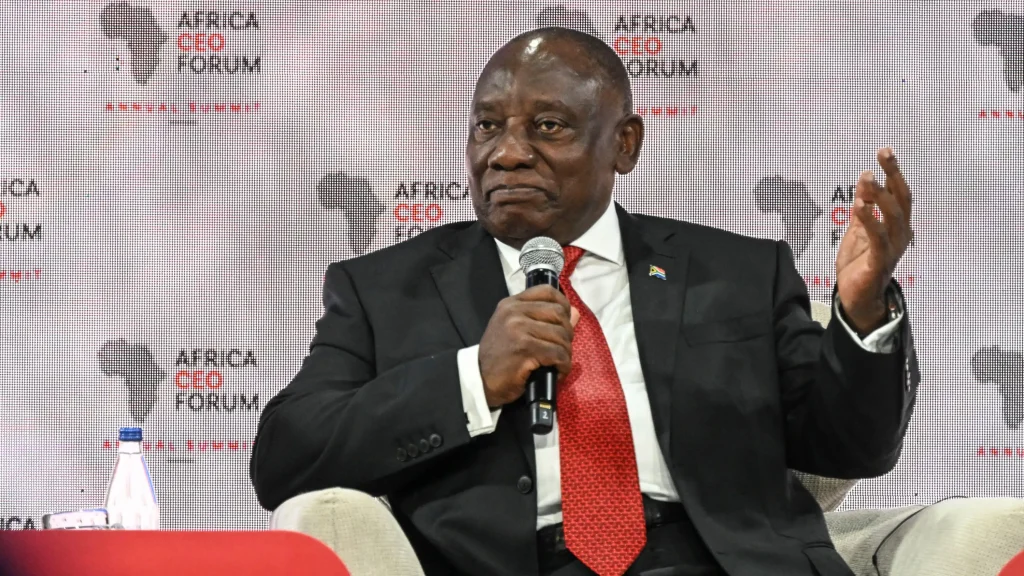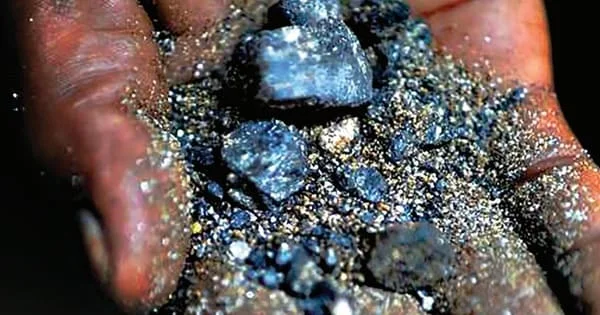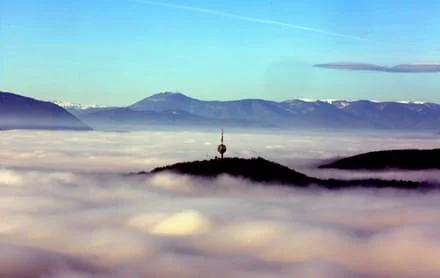South African President Cyril Ramaphosa has sparked controversy by labeling a group of 59 white Afrikaners who relocated to the United States as “cowards” after they were granted refugee status by President Donald Trump, citing claims of racial discrimination.
Ramaphosa’s Remarks at Agricultural Exhibition
Speaking at an agricultural exhibition in South Africa’s Free State province on Monday, Ramaphosa criticized the group’s decision to emigrate.
He argued that they were fleeing efforts to address the nation’s historical inequities.
“As South Africans, we are resilient. We don’t run away from our problems. When you run away, you are a coward,” he stated, predicting that the group would return, as “there is no country like South Africa.”
Ramaphosa suggested that the Afrikaners’ departure reflects discomfort with policies aimed at rectifying the legacy of apartheid, describing their relocation as a “sad moment for them.”
He emphasized national unity, stating, “Black and white, we’ve stayed in this country because it’s our country, and we must stay here and solve our problems.”
U.S. Refugee Policy Shift
The Afrikaners’ resettlement follows a 2018 directive from President Trump prioritizing asylum for white South Africans, particularly Afrikaner farmers, whom he claimed faced “unjust racial discrimination.”
According to reports, the U.S. fast-tracked asylum processes for this group, reviewing over 8,000 applications and identifying around 100 Afrikaners as potential refugees.
This move contrasts with the near-total suspension of the U.S. refugee resettlement program, leaving thousands from conflict zones like the Democratic Republic of Congo waiting in camps.
The decision has drawn criticism for prioritizing a white minority group while global refugee admissions remain limited, fueling debates about U.S. immigration policy and racial bias.
Land Reform and Racial Tensions
Central to the controversy is South Africa’s land reform debate. Over 30 years after apartheid’s end, white South Africans, who make up a small minority, control approximately 75% of private land.
They also hold wealth roughly 20 times greater than the Black majority, according to the Review of Political Economy.
Black farmers own only a fraction of the country’s best farmland, fueling frustration over the slow pace of reform.
In January 2025, Ramaphosa signed a law allowing the government to seize privately owned land without compensation in cases deemed “equitable and in the public interest.”
While the government insists no land has been seized under this act, the U.S. has accused South Africa of confiscating white-owned farms without payment, a claim Ramaphosa refuted in a conversation with Trump.
“We’re the only country on the continent where the colonizers came to stay, and we have never driven them out,” he said, dismissing allegations of Afrikaner persecution.
Global Reactions and Misinformation
Claims of white persecution in South Africa have gained traction online, amplified by figures like Elon Musk, a South African-born billionaire, and far-right groups in the U.S.
These narratives often exaggerate or misrepresent the realities of land reform and racial dynamics in South Africa, further polarizing the debate.
Ramaphosa’s remarks and the Afrikaners’ resettlement highlight the ongoing challenges of addressing apartheid’s legacy while navigating international perceptions and domestic unity.
As South Africa grapples with economic disparities and land reform, the emigration of this group underscores the complexities of reconciliation in a post-apartheid era.























